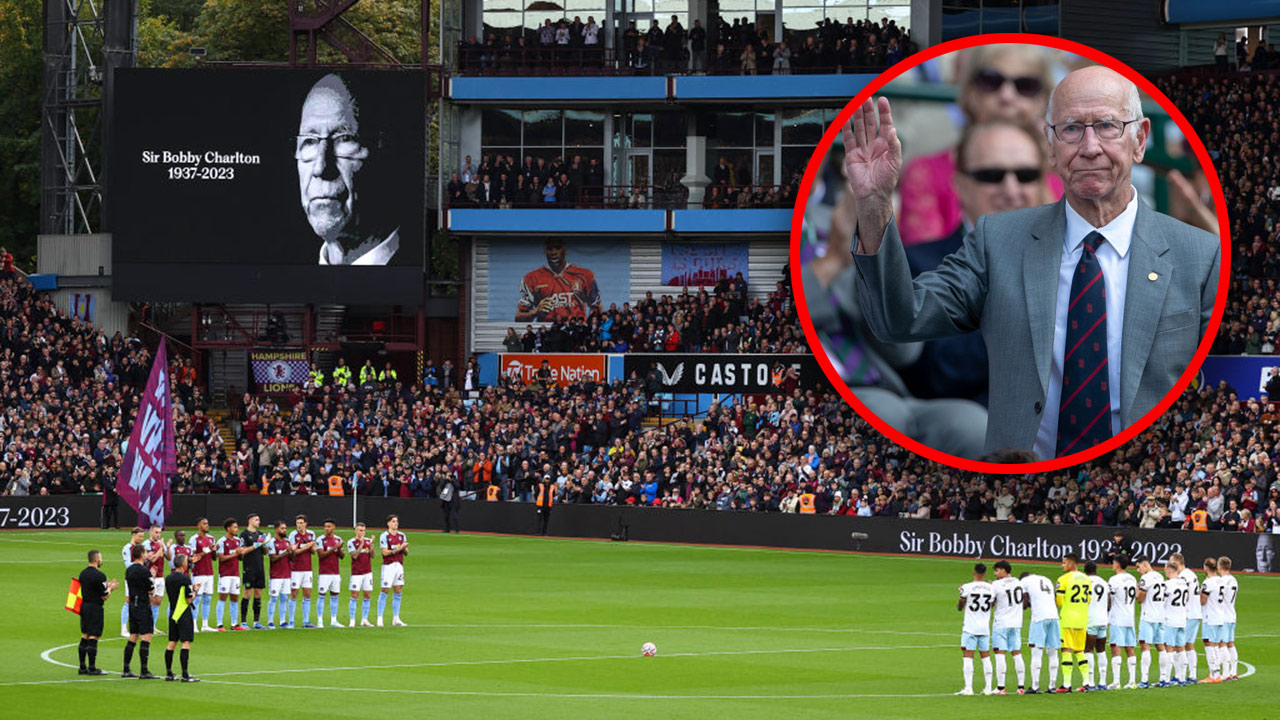“England’s greatest ever”: Sir Bobby Charlton’s cause of death

In the early hours of Saturday morning October 21, the footballing world was met with sombre news. England World Cup winner and Manchester United great, Sir Bobby Charlton, described by the club as a "giant of the game", had passed away. Charlton's death marked the end of an era for both English football and Manchester United Football Club, and his legacy will continue to shine as brightly as ever.
Charlton had been battling dementia, and his passing came just a week after he celebrated his 86th birthday. His journey through the beautiful game was a storied one, filled with remarkable achievements that will forever etch his name in the annals of football history.
Perhaps the pinnacle of Charlton's career was his role in England's victorious 1966 World Cup team. He was a vital cog in the squad that claimed England's first and, so far, only World Cup triumph. His skills, determination, and sportsmanship on the pitch endeared him to fans not only in England but around the world.
But his influence didn't stop at the international level. At club level, Charlton enjoyed tremendous success with Manchester United. He played a significant role in the Red Devils becoming the first English club to lift the European Cup in 1968. This victory came a decade after the tragic Munich air crash, which claimed the lives of several members of the United team. Bobby Charlton's resilience and commitment to the club were instrumental in rebuilding and achieving such remarkable heights.
Upon hearing the news of Charlton's passing, the footballing community united in mourning. England World Cup winner Geoff Hurst, who scored a historic hat-trick in the 1966 final with Charlton by his side, expressed his sorrow and paid tribute to his "great colleague and friend." The sentiment was echoed by former Manchester United star David Beckham, who revealed that Sir Bobby Charlton had a profound influence on his career, going so far as to say that he was named after the legend himself – with his father giving him the second name "Robert" after his idol at the time.
Charlton's impact extended beyond the field, as noted by former England forward Gary Lineker, who dubbed him "England's greatest ever player." Charlton's class and sportsmanship both on and off the pitch made him an enduring symbol of the beautiful game. He represented the essence of what it meant to be a footballing legend.
Former Manchester United captain Gary Neville recognised Charlton as the club's "greatest ambassador." His contributions to the Red Devils, both as a player and later as a club director, played a significant role in shaping the club's legacy. He was a constant presence in the dressing room, offering his support and wisdom, win or lose.
For Rio Ferdinand, Sir Bobby Charlton was a "true gentleman" and "Mr Manchester United." He recounted a pivotal moment when Charlton shared words with him at the bottom of the stairs in Moscow before lifting the Champions League trophy in 2008. Those words will forever remain with Ferdinand, a testament to the profound impact Charlton had on those around him.
Charlton's legacy also reached beyond the United Kingdom, with global football icon Eric Cantona paying his respects, hailing him as "one of the best of all time". Current Manchester United midfielder Casemiro acknowledged Charlton's Ballon d'Or and European Cup victories, highlighting his irreplaceable role in the club's storied history.
British Prime Minister Rishi Sunak added his voice to the chorus of tributes, recognising Sir Bobby Charlton's place in history as one of the game's greatest players. He described Charlton as "hugely loved" and offered his condolences, saying, "Rest in peace, Sir Bobby."
"Manchester United are in mourning following the passing of Sir Bobby Charlton, one of the greatest and most beloved players in the history of our club," the Premier League club said in a statement. "Sir Bobby was a hero to millions, not just in Manchester, or the United Kingdom, but wherever football is played around the world.
"He was admired as much for his sportsmanship and integrity as he was for his outstanding qualities as a footballer. Sir Bobby will always be remembered as a giant of the game."
Images: Getty Images
